#sam peckinpah: man of iron
Text
LEGEND reveals slate of horror and action premieres for September
Knight Rider! Iron Eagle II & III with @LouisGossettJr! Convoy! Lots more too! Check out @Legend__Channel September Lineup right here
#Legend #Convoy #KnightRider #IronEagle
Friday and Saturday nights in September on Legend are premiere-packed, headed up by the UK TV premiere of Doug Liman’s (director of The Bourne Identity, Edge of Tomorrow), deadly psychological thriller THE WALL, staring John Cena and Aaron Taylor-Johnson. There are also Channel premieres for horror-mystery THE FINAL WISH, dark comedy vampire horror THE SHED, Walter Hill’s neo-noir crime…

View On WordPress
#Ali McGraw#Bruce Dern#Convoy#horror#Iron Eagle#Knight Rider#Kris Kristofferson#Legend#Sam o&039;Neill#Sam Peckinpah#The Invisible Man#tv#Walter Hill
0 notes
Text
THIS DAY IN GAY HISTORY
based on: The White Crane Institute's 'Gay Wisdom', Gay Birthdays, Gay For Today, Famous GLBT, glbt-Gay Encylopedia, Today in Gay History, Wikipedia, and more … December 20

1785 – The last known execution for sodomy in the United States occurs in Pennsylvania. Joseph Ross is the victim.


1904 – The American actor and director Albert Dekker, who died in unusual circumstance in 1968, was born in Brooklyn, New York, as Albert Ecke. His films include the classics The Man in the Iron Mask (1939), Beau Geste (1939), The Killers (1946), The Sound and the Fury (1959), Suddenly, Last Summer (1959), and The Wild Bunch(1969). He replaced Lee J. Cobb as Willy Loman in the original production of Arthur Miller's Death of a Salesman, and during a five-year stint back on Broadway in the early 1960s, he played the Duke of Norfolk in Robert Bolt's A Man for All Seasons.
Dekker appeared in some seventy films from the 1930s to 1960s, but his four most famous screen roles were as a mad scientist in the 1940 horror film Dr. Cyclops; as a vicious hitman in the The Killers; as a dangerous dealer in atomic fuel in the 1955 film noir Kiss Me Deadly; and as an unscrupulous railroad detective in Sam Peckinpah's western The Wild Bunch, which would be his last screen appearance.
Dekker's off-screen preoccupation with politics led to his winning a seat in the California State Assembly in 1944. Dekker served as a Democratic member for the Assembly until 1946. During the McCarthy era he was an outspoken critic of U.S. Senator Joseph McCarthy's tactics; to avoid being blacklisted he spent most of the period working on Broadway rather than Hollywood.
For his contribution to the motion picture industry, Dekker has a star on the Hollywood Walk of Fame at 6620 Hollywood Boulevard.
On May 5, 1968, Dekker was found dead in his Hollywood home after failing to answer numerous phone calls for two days. Although money and camera equipment were missing, there were no signs of forced entry. He was found naked, kneeling in his bathtub with a noose wrapped around his neck that was looped around the shower's curtain rod. He was also handcuffed, blindfolded, gagged and had "make me suck" and "slave" and "cocksucker" scrawled on his body in red lipstick.
The police toyed with a theory that Dekker was a closet homosexual who practiced his eccentricities very discreetly with anonymous male prostitutes, and that this time, something had gone wrong and the frightened partner had quietly let himself out. The coroner's ruling was accidental death by autoerotic asphyxiation.

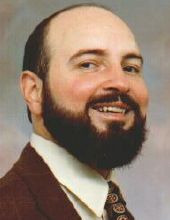
1944 – Craig Schoonmaker (d.2018) was an early advocate of outing other gay people, and was the co-founder of the Expansionist Party of the United States. Also an advocate for spelling reform, and agay rights activist, Schoonmaker claimed to have originated the term "gay pride."
Born in Newark, New Jersey, not much is known about Schoonmaker's early life. He attended Middletown Township High School in Monmouth County, New Jersey, graduating in 1962. Following high school, Schoonmaker remained in Newark for a few years, working several jobs, before finally moving to Manhattan in June 1965. Shortly thereafter, he began to go by his middle name Craig in everyday life.
Not long after arriving in New York, he entered into a long-distance relationship with a man living in Vancouver, Canada. Despite this, Craig Schoonmaker largely stayed clear of the gay activist scene which had begun to take hold in New York City.
While having a conversation with a fellow gay friend on Christopher Street in Greenwich Village, they were approached by an officer of the NYPD, who instructed them to, "Break it up and move on." After refusing, Schoonmaker was arrested and spent the night in jail. At his arraignment the next morning, he pleaded not guilty on the basis of constitutional infringement of his First Amendment right to free assembly. The charges were eventually dropped. It was the beginning of his activism.At one of the earliest Christopher Street planning meetings, discussion ensued regarding the terminology which was to be used in official advertising for an upcoming event. A sizable contingent of members favored adopting the term "Gay Power" for the event. However, according to a 2015 interview he gave to the linguistics podcast 'The Allusionist,' Schoonmaker offered an alternative term: "Gay Pride," which the members of the committee voted to adopt.
Unfortunately, his nature was such that he was constantly at odds with others in the active gay and lesbian movements. Craig Schoonmaker spent his entire adult life advocating an exclusionary vision of LGBTQ politics in which white, cisgender gay men wielded all power and influence. As a necessary component of this vision, women, bisexuals, transgender people, and anyone else who did not fit into his rigid sexual and gender binary were not simply irrelevant in Schoonmaker's eyes, but were his mortal enemies. The very concepts of solidarity and cooperation were alien to him.
Schoonmaker filed to run for President of the United States in the 2000 election cycle. Because the Expansionist Party was not officially recognized as a political party anywhere within the U.S., Schoonmaker filed as an Independent.

1955 – Frank Kameny is fired from his job as an astronomer in the United States Army’s Map Service in Washington, D.C. because of his homosexuality. A few days later he is blacklisted from seeking federal employment. These events spur Kameny into being a gay rights activist.

1978 – The Texas Court of Criminal Appeals rules that touching a clothed crotch constitutes "public lewdness."

1980 – According to recently released stats, at least one person is physically assaulted in New York City each day because they are gay or lesbian. (And it's never ME ! )


6 notes
·
View notes
Video
youtube
James Coburn - Full Interview Sam Peckinpah: Man of Iron (1993)
1 note
·
View note
Photo
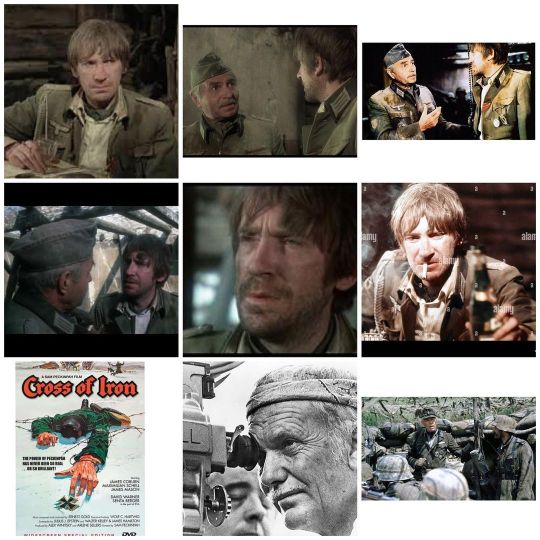
In honor of Actor David Warner, who I had the immense pleasure of meeting & speaking with @ length (a most gracious & giving man) IMHO one of the best roles of his career, “Capt Kiesel”, the uber-cynical but always loyal Adjutant to both his regiment & his superior officer “Colonel Brandt” (James Mason) in Director Sam Peckinpah’s incomparable 1977 masterpiece “Cross of Iron”. Colonel Brandt: “What will we do when we lose the war?” Capt Kiesel: “Prepare for the next one.” #ripdavidwarner #sampeckinpah #actor #actorslife #actorlife #history #actors #hollywood #oldhollywood #classichollywood #hollywood #thespian #schauspeiler #wehrmacht #warmovie #warmovies #englishcinema #royalshakespearecompany https://www.instagram.com/p/CgdlrmQO9Kl/?igshid=NGJjMDIxMWI=
#ripdavidwarner#sampeckinpah#actor#actorslife#actorlife#history#actors#hollywood#oldhollywood#classichollywood#thespian#schauspeiler#wehrmacht#warmovie#warmovies#englishcinema#royalshakespearecompany
0 notes
Video
youtube
James Coburn - Full Interview Sam Peckinpah: Man of Iron (1993)
0 notes
Photo
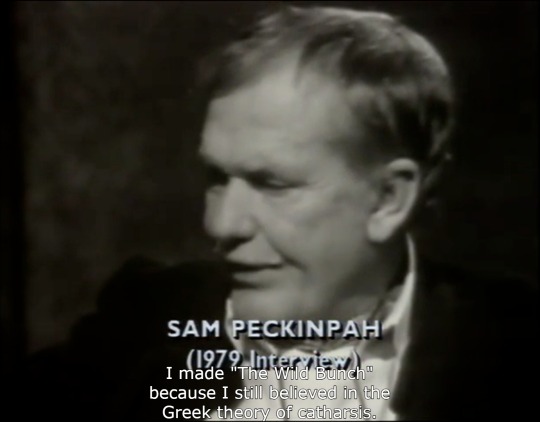
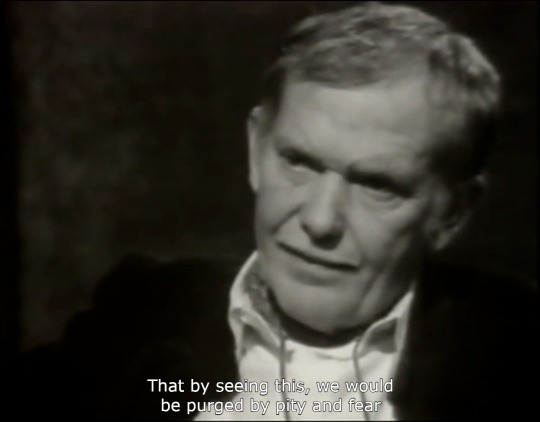

Sam Peckinpah: Man of Iron(1993)
6 notes
·
View notes
Photo
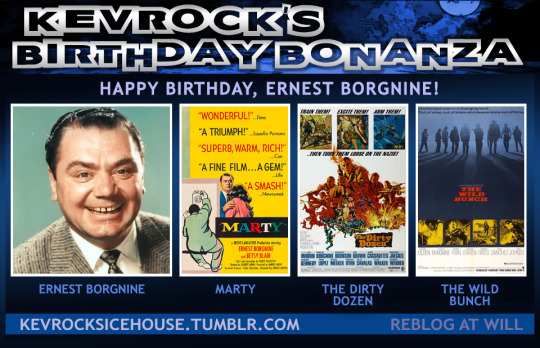
Ernest Borgnine, the character actor who won a leading man’s Oscar, would have been 104 today. Just a few shots from a long career:
Sgt. James R. “Fatso” Judson in From Here to Eternity. D: Fred Zinneman (1953). A small but crucial role and one of the most menacing villains of the ‘50s. Judson, who ran the Army stockade is a sadist and in a movie where, because of Army censorship, the stockade violence happened offscreen, the actor had to imply the character’s odiousness - his pleasure in breaking “tough monkeys”, (“Guys like you end up in the stockade, sooner or later. Someday you’ll walk in; I’ll be waiting. I’ll show you a couple of things.”) Borgnine played Fatso, (whose name belied his brick-wall frame) flashed his psycho’s grin and for the rest of the movie when any character even came close to landing in the stockade his memory produced a shudder.
Marty Piletti in Marty. D: Delbert Mann (1955). As a single, ordinary-looking butcher (“Whatever it is that women like, I ain’t got it.”) meets a plain girl who has been stood up on a blind date (Betsy Blair) and they have a great night. Afterwards, social and family pressures keep him from calling her until he finally says “She’s a dog. And I’m a fat, ugly man. Well, all I know is I had a good time last night. I’m gonna have a good time tonight, If we have enough good times together, I’m gonna get down on my knees and beg that girl to marry me. If we make a party on New Year’s I got a date for that party.” Both Borgnine and the movie got lucky as well, scoring Oscars for Best Picture and Best Actor respectively.
Dutch in The Wild Bunch. D: Sam Peckinpah (1969). After Marty, Borgnine never stopped working, doing TV (McHales Navy, Airwolf, the last episode of ER) hit movies (The Dirty Dozen, The Poseidon Adventure) and not such hit movies (Merlin’s Shop of Mystical Wonders was a big MSTK3 punching bag) and one of the greatest Westerns in cinema history where he plays the aging co-leader of a gang of desperados trying to survive in a west that’s passing them by. If William Holden’s weariness and outlaw’s code defined the high end of Peckinpah’s vision, Borgnine’s pragmatism, natural diplomacy and ironic humor (Holden: “I’d like to make one good score and back off..” Borgnine: “Back off to what?”) kept the movie grounded and made credible what held the bunch of miscreants together all those years. And a look between the two of them triggers the incredibly violent climax when their philosophies converge and they make the decision to do the right thing and go down in a blaze of fiery glory, just for a laugh.
2 notes
·
View notes
Text
That OTHER big Lone Ranger flop
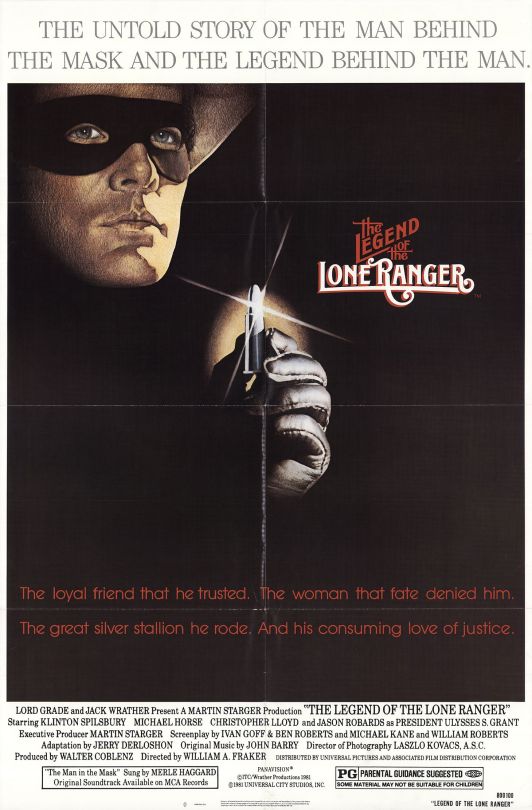
Coming out in 1981, The Legend of the Lone Ranger is, if anything, worse than the infamous Johnny Depp flop, where at least things happen. In ‘Legend,’ it literally takes an hour before Reid is in the mask, Lone Rangering it up. AN HOUR. That leaves a half an hour and change (including credits) for the title character. Insane!
-We start off pretty much in media res, with a young Tonto on the run from... bandits? Until he’s saved by John Reid as a kid. Reid’s parents are killed, so Tonto takes him in to live with his tribe. It’s ironic--back then, coming off the seventies, this was probably meant to be woke, but nowadays, I’d guess the same people it was trying to appeal to would be scandalized by Reid essentially getting a power-up by being raised by Native Americans (’learning the ways of the wind,’ as the narrator puts it). Say, doesn’t this make it a huge coincidence that decades later, Tonto will be the one to save his childhood friend from Butch Cavendish? Yup.
-Because 1981 was pretty much still the seventies, we get a drippy hippie-rock country song as our theme. I don’t think the William Tell Overture has anything to be worried about.
youtube
-Eventually, John is picked up by his brother Dan, who sends him to Boston, where he grows up to become a lawyer. Which means that this movie is actually doing the “John Reid isn’t a Texas Ranger, he’s a city mouse lawyer” thing just like the Johnny Depp version did. WEIRD. I mean, doesn’t ‘the Lone Ranger’ really only work as a name if he’s actually a Ranger? Yeah, they deputize him, but c’mon--Reid’s getting pretty big in his britches if he thinks being a Ranger for five minutes entitles him to go around calling himself ‘the Lone Ranger.’ And I guess the Native American summer camp thing is supposed to replace his Texas Ranger training? Ehh.
-In present day--or you know what I mean--a grown-up John, now played by Klinton Spilsbury, who will be dubbed (!!!) throughout the movie--is riding in a stagecoach to Texas, which it has to be said looks a lot like Monument Valley. Bandits attack, the stage driver is killed, and John heroically climbs up to take the reins and--surrender to the bandits. Yeah, he turns the table on them, with the help of a Chinese passenger who wields a throwing knife (!) (maybe the movie should be about that guy), but still, what an inauspicious start to THE LEGEND OF THE LONE RANGER.
-From here, we’re in for the long haul, and it drags. John reunites with his brother Dan. He romances his love interest, who is totally pointless except to have a love interest. He meets love interest’s uncle, who runs a newspaper speaking out against corruption and injustice and stuff (uh-oh). We meet Butch Cavendish, who here isn’t so much a greedy desperado as he is a militia leader intent on kidnapping the President (!) and starting his own country (!!). You’d think that, and the fact that he’s played by Christopher Lloyd (!!!), would mean he’s get some development, but we pretty much never find out his motivation or anything.
-Uncle Newspaper Editor gets killed by Butch, the Rangers track him down, and they get ambushed in a sequence that’s even more over-the-top than Jerry Bruckheimer would manage. Dozens of Butch’s men block up the canyon with dynamite-filled carriages, turn a Gatling gun on the Rangers, and finally Butch personally executes Dan and John with a sharpshooting rifle. Geez, overkill much?
-Tonto, of course, finds John and nurses him back to health with that old Native American magic--just once, I’d like to see an Indian get injured in one of these things and then be healed by a magical white man... with penicillin. It’s the seventy-eighties, so Nu Tonto doesn’t trust the white man, but John is his buddy, so what’re ya gonna do? Yes. Truly that whole tangent was way better than just Tonto acting compassionately towards an injured man.
-As if that wasn’t enough, now John has to go through a whole training montage, learning to shoot with ‘more accurate’ silver bullets and taming Silver the horse. But then, finally, it’s time to Lone Ranger it up. They play the William Tell Overture and everything.
-Butch is planning to hijack the president’s train, which he does with surprising ease, so John and Tonto sneak into his camp and rig the whole place with explosives, resulting in a stunt show climax that surely must stretch the Lone Ranger’s no-kill rule to the limit. But John doesn’t kill Butch in their final mano-e-mano showdown, but rather delivers him to surely be executed for his crimes. A grateful President promises Tonto he’ll keep the treaties with the Indians (I’d get that in writing, kemosabe), and we’re outta here.
-So, that’s The Legend of the Lone Ranger. It actually has a lot in common with its more famous ‘remake,’ right down to being surprisingly gory and sweary in places. Sure, probably mild by today’s standards, but in 1981, I’m kinda wondering how people liked a nostalgic family movie where the hero and his brother got the Sam Peckinpah treatment. And weirdly, the movie almost totally lacks in personality, seeming to borrow a ton from other folk heroes. The Lone Ranger saves Tonto from a semi-random public hanging by shooting the noose, like Robin Hood would do. He disguises himself as a priest to chat up his lady in a confessional, just like Zorro would do. Even the country-fried narrator comes off like a cut-rate version of the Dukes of Hazzard balladeer. And, you know, the main character is dubbed for the entire movie. What is this, a Godzilla film?
17 notes
·
View notes
Text
Legion Chapter 20 “Morning After”-Thoughts -- SPOILERS!!!
*
*
*
*
*
*
*
*
*
*
*
*
*
*
*
*
*
*
*
*
*
*
*
*
SPOILER TERRITORY
My feelings this season at present about David versus the majority (READ: non-Loudermilks) of the Summerland/D3 gang, especially Ptonomy, a fave of mine from S1 and the first half of S2, as summarized by my new fave, Switch:
“He is a man. You are a robot.”
I mean, okay, Chapter 20 for all practical purposes has made Switch the central character, at least from this ep -- the “David” from Chapter 1, if you will -- and tbh, that’s fine with me, as she seems the most sympathetic and relatable character thus far. And this is the first ep of the season, and if S2 for all its faults proved anything, it was not to judge the finale of a season by its premiere, because anything can and will happen by the “final curtain.”
But anyway, we see David -- and eventually D3 and Farouk -- through her eyes, and her ultimate conclusion and decision to help David, ignoring the red (green?yellow?) flags (institutionalization, weird conversation with a Scottish “identical twin,” that creepy giant pig-thing, etc.), at least for the time being. I think she will most likely be analyzing these a bit more later on down the line, tbf, but when the D3-invasion occurs, she sees these emotionless, seemingly unfeeling mechanical beings set to kill a (right now) mostly peaceful clan and their leader. They (the D3-folks and soldiers) are detached and unfeeling, and for all of the flaws he tries in vain to hide, or perhaps because of them, David is the one who comes across to her as an honest-to-goodness human being. For all of the warning signs, he is expressing genuine emotion (for a guy who’s now in the biz of “taking away pain,” I think it’s a safe bet he’s feeling nothing but, eerily gentle vocal tones notwithstanding), and her own world as presented in the first fifteen minutes of this ep is pretty sterile and detached. When she first sees the real Syd and not a mere projection from David’s mind, she sees a cold, calculating..dare I use the word “monster?” -- barely looking human in those amber shades and that thought-suspending headband-shield-thing -- who commits the greatest felony any western fan will point out: Shooting David in the back and tough-talking Switch out of the way in the process. (Which apparently is perfectly fine and understandable if she does it to David in the spirit of revenge, but downright horrific and inexcusable when David clubs and punches SK in the spirit of revenge, but I digress!) You know that old saying “You never get a second chance to make a first impression”? Well, Switch may have the ability to rewind time and do things over multiple times, but something tells me that won’t erase her first impression of Syd. IMO, at least, it’ll take some doing to convince Switch -- and me as a viewer -- that Syd is anywhere near a mere good guy, much less (as has been printed ad infinitum) “the true hero.” As a matter of fact, in the final five minutes or show shifting to the D3-perspective, Clark and Syd seem every bit as consumed and obsessed with their desires to kill David as David was in Chapters 16, 18, and 19 in particular in his desire to kill Farouk. I picked this up from Daniel’s concern over the enormous expense of the mission, and as supportive of a spouse as Daniel is, I’m not so sure he’s totally chill with Clark’s “Well, we’ll just kill her too, then!”-attitude. (Back to Syd, keeping RK’s “How she responds to failure is what makes her a hero”-quote in the back of my head for a “Wait-and-see”-mentality and keeping my fingers crossed. Hope that includes burning off her rather narcissistic tattoo!!!)
Also, Switch has literally witnessed an armed invasion of what technically could be considered private property or thereabouts! (NOTE ON VISUAL DEPICTION OF FIRST ATTEMPT AT ATTACKING DAVID: Speaking of westerns, somewhere out there, the ghost of The Wild Bunch-director Sam Peckinpah is smiling!) And SK expects her to consider loyalty to a group of apparent soldiers/thugs coldly shooting up a bunch of seeming peace-loving hippies and convincing her that he’s the benevolent father figure and that David is a sick man? Okay, fine, the latter won’t be so hard to prove to her, I should imagine, but my point is that this violent display right off the bat is naturally going to put her off more than a little!
And right now, when I think of the Summerland Gang and compare them to how they were in the first season, that’s how I think of the situation as well. I miss the Old Gang and how they more or less worked together as a group, ironically at a time when they were at odds with D3 and encouraging David that he was “a key to winning the war.” I’m sure there’ll be a turning point somewhere down the line, but I’m finding them next to impossible to root for, at least right now.
On a side note, interesting parallel: Both opponents literally sitting Switch down to tea to present their side of things and hoping to win her over, David pouring iced tea on his “porch” while SK sips hot tea out of an elegant teacup at an outdoor table (anyone else half-expect DA’s Thomas Barrow to make a surprise cameo or spot Lady Grantham and Cora at a nearby table? LOL!). I’d have to watch this again to be certain, but it doesn’t seem that Switch indulges in sipping in either scenario; she definitely doesn’t drink David’s iced tea. This may also be a parallel to David’s tank-induced confrontation of SK from Chapter 11 at his villa, where SK offers David a drink and he sniffs and glances at the beverage distastefully (one of my favorite moments of that scene, fwiw -- bwahaha!).
Just a few ruminations/impressions...
11 notes
·
View notes
Photo
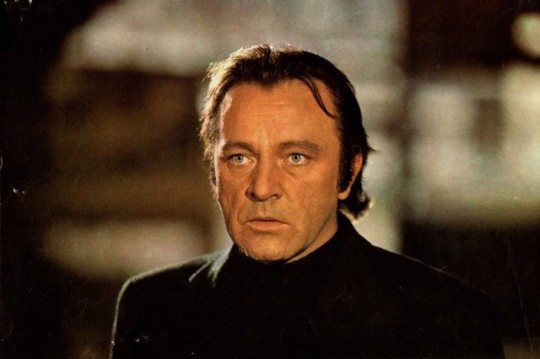
Tomorrow, Monday, Dec 17, 3:00 AM PT —5:00 PM PT on TCM. Call in sick and unplug the phone…
3:00 AM
VILLAIN (1971): In this British neon-noir, a paranoid British gangster (Richard Burton) thinks everybody is a potential stoolie, the character was modeled on the notorious British mobster Ronnie Kray. Based on the novel The Burden of Proof by James Barlow. Dir. Michael Tuchner
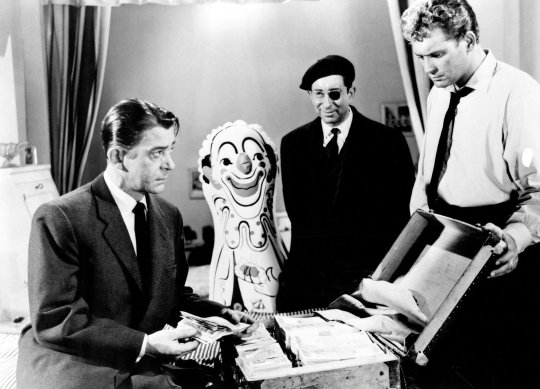
4:45 AM
RIFIFI (1954): Four thieves (Jean Servais, Carl Möhner, Robert Manuel and Jules Dassin) plan a daring jewelry heist, expertly shot in complete silence by blacklisted director Jules Dassin. A woman proves their downfall or really a man's desire to impress a woman leads to their undoing. Dir. Jules Dassin
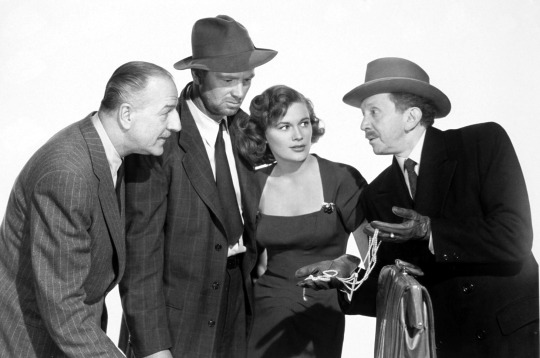
7:00 AM
THE ASPHALT JUNGLE (1950): A hoodlum and ex-con (Sterling Hayden) hopes for one last big score that will enable him to go home to his farm in Kentucky. He falls in with a gang of small time crooks plotting an elaborate jewel heist. Of course, you can never go home again. A young Marilyn Monroe plays a small but juicy part. The film was nominated for four Oscars including a Best Supporting Actor nod for Sam Jaffe as the mastermind undone by his passion for beautiful girls. Dir. John Huston

9:00 AM
KANSAS CITY CONFIDENTIAL (1952): Ex-con and floral delivery man Joe Rolfe (John Payne), journeys to Mexico to hunt down the gang of thieves that framed him for robbery and murder. The trio of baddies is superb: Neville Brand, Lee Van Cleef and Jack Elam. Dir. Phil Karlson
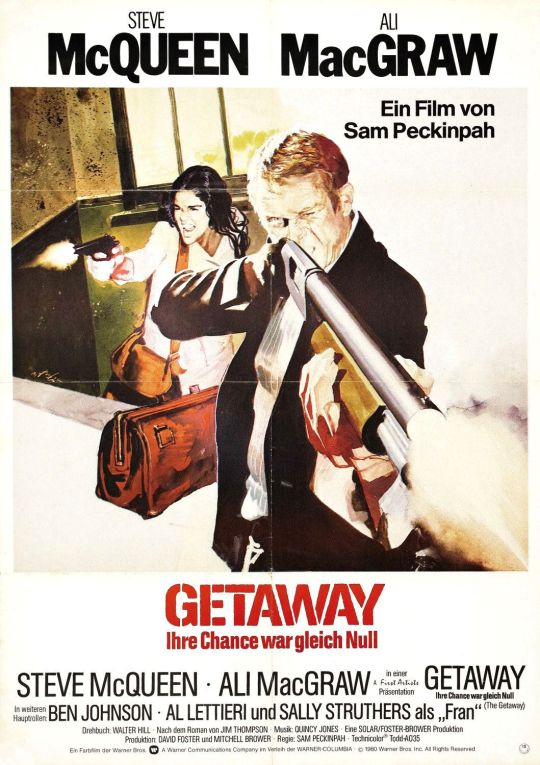
11:00 AM
THE GETAWAY (1972): In this first big screen adaptation of Jim Thompson's novel, a husband (Steve McQueen) and wife (Ali McGraw) meet a series of misadventures after a bank heist and the wife's shooting of the mastermind of the robbery who double crossed them. Stars McQueen and McGraw fell in love during the course of the shooting. Walter Hill penned the screenplay. Dir. Sam Peckinpah
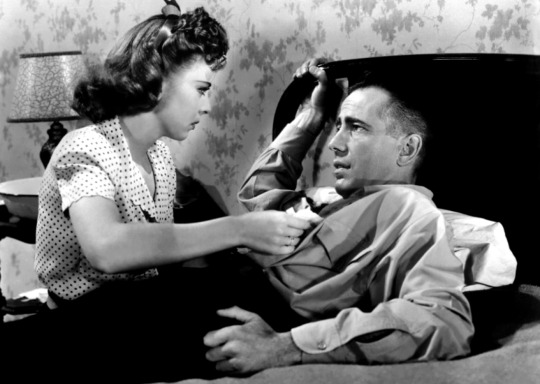
1:15 PM
HIGH SIERRA (1941): Humphrey Bogart plays Roy Earle, a hardened criminal with a heart of gold, who finds love, redemption and a not so happy ending with the lovely and vulnerable Ida Lupino in this noir classic. This was one of three roles that George Raft refused that Bogart accepted, ironically the three roles that shot him into stardom after years of playing second bananas at Warner Brothers to among others, George Raft. Dir. Raoul Walsh
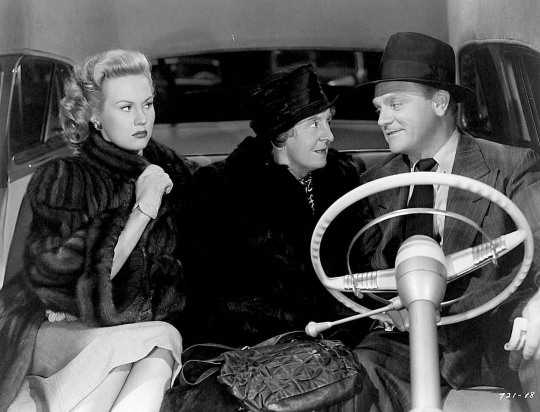
3:00 PM
WHITE HEAT (1949): "Top of the world, Ma!" a G-man (Edmond O'Brien) infiltrates a gang run by a mother-fixated psychotic, James Cagney in a stand out performance. This film marks the cinematic movement away from the traditional Warner Brothers' portrayal of the gangster to the more cynical and psychological film noir interpretation. Pointless trivia: Naked Gun 33 1/3 borrowed the plot. Dir. Raoul Walsh
See which other noirs are playing this month on TCM: http://www.filmnoirfoundation.org/news-tv.html
50 notes
·
View notes
Photo


This film is a guilty pleasure, but I fucking love Sam Peckinpah’s Cross of Iron (1977), starring James Coburn & Maxmillian Schnell. From its period accurate costuming and equipment including vehicles, to its music and sound design with disturbing and compelling visuals (the opening montage still gives me chills, as does the concluding one) to its signature Peckinpah slow-motion operatic violence and gore borrowed wholesale from The Wild Bunch in this Wagnerian mythology where the Wild West is mashed-up with the dismal Eastern Front in a way only Hollywood & Peckinpah could dream up.
This film aspires to be anti-war, but many film theorists more able than I have written books and articles about the near impossibility of actually creating an effective anti-war film, especially if it depicts combat.
Israeli historians of WW2 have done research that largely debunks the mythology of this film when compared to actual history, especially the state of unit cohesion in the Wehrmacht of 1943. By this late in the war the casualty rates were staggeringly high and a cohesive platoon such as Steiner’s would’ve been nearly impossible in 1943. No, the Cross of Iron is a portrait of how Germany would *like* to remember itself in WW2, not how it actually was. No mention is made of the Holocaust, Nazi ideology is openly mocked by its soldiers excepting a few ideological fanatics, and even the hard-ass conservative, aristocratic Prussian commander isn’t fully comfortable with the lingering, leveling aspects of Nazi ideology.
The one bit that is true, that I learned watching Peter Jackson’s latest documentary of World War I, They Shall Not Grow Old, is the antipathy felt by Germans from various other regions (Bavaria, Saxony, Rheinlanders, Swabians) towards the hardass, martinet Prussians of the northeast in and around Berlin/Brandenburg. In Jackson’s film, the British soldiers remarked how easy-going the Bavarian and Saxon POWs were, and joked with their captors that the unit facing them were full of Prussians and to please give them hell on their behalf. The Prussians may have unified Germany by force of arms and economic customs union, but there’s not much love lost between other Germans and them at a cultural level. The Prussian is routinely mocked, especially by the laid-back Bavarian. Humorlosen Prussians are the butt of many Bavarian jokes.
Historians argue that with the extremely high casualty rates and destruction of unit cohesion on the Eastern Front, German soldiers if anything became more ideologically committed to the Nazi cause because it was the only common bond holding them together. Comrades died too rapidly and unexpectedly on the Eastern Front to form deep, lasting bonds. Units were decimated, the remnants blended with other units, etc. The German army became more fanatical as the war progressed and went badly, not less. There’s also the mythology of the alleged “purity” of the Wehrmacht and all the atrocities are blamed on the Waffen SS. This is pure nonsense and belied by history. The Waffen SS were decidedly worse but the Wehrmacht were hardly innocent of war crimes and they were quite instrumental to The Final Solution/Holocaust in their own right. Men like Sgt. Steiner probably either never existed or were killed early on.
This Anglo-American/German production, shot on location in Yugoslavia in 1977 is perhaps arguably a product of the ideological necessities of the Cold War as it stood in the late 1970s. It was necessary to believe there were “Good Germans”, even among those who donned the Wehrmacht uniform and participated in Operation Barbarossa and some of these men are now Bundeswehr flag officers and valuable NATO allies and sufficiently entnazifiziert that we needn’t bring up the past anymore. Whereas the reality is a good deal more murky. Another favorite film of mine that heightens these contradictions and problems and makes an interesting companion piece to Cross of Iron is Lars von Trier’s Zentropa, set in immediate post-war Germany during the allied occupation with Nazi “Werwolf” bitter-ender terrorists still active and not yet fully suppressed; Zentropa acknowledges that while the Nuremberg Trials may have gotten many of the big fish, a lot of smaller fish got away. Some were (unjustly) rehabilitated to become captains of industry or literal Bundeswehr captains. Yet more films set in this period that I obsess over is Orson Wells’ The Third Man set in occupied post-war Vienna and Agnieszka Holland‘s Europa! Europa! where a young Jewish boy tries to conceal his Jewish identity and joins the Hitler Youth after being “liberated” from the Soviets by the Wehrmacht and mistaken for an ethnic German.
I learned in reading up on the troubled production of Cross of Iron that supposedly a sequel was made featuring Richard Burton taking over the role of Sgt. Steiner called Breakthrough. I’ve never see it, though I suppose I should, but for me, any notion of a sequel undercuts the beauty of the original film. In my headcanon, everyone save Capt. Kiesel dies. There’s no way Steiner & Stransky survived that final battle. The film doesn’t make any sense if they do.
That final battle takes on a dream-like quality that lets you know this story is now entering the realm of myth and legend...and our principal players are dead. Thus I refuse to acknowledge Breakthrough as a true sequel.
3 notes
·
View notes
Photo

Today we remember the passing of James Coburn who Died: November 18, 2002 in Beverly Hills, California
James Harrison Coburn III was an American actor. He was featured in more than 70 films, largely action roles, and made 100 television appearances during a 45-year career, ultimately winning an Academy Award in 1999 for his supporting role as Glen Whitehouse in Affliction.
Coburn was a capable, rough-hewn leading man, whose toothy grin and lanky physique made him a perfect tough guy in numerous leading and supporting roles in westerns and action films, such as The Magnificent Seven; Hell Is for Heroes; The Great Escape; Charade; Our Man Flint; In Like Flint; Duck, You Sucker!; Pat Garrett and Billy the Kid; and Cross of Iron. Coburn provided the voice of Mr. Waternoose in the Pixar film Monsters, Inc. In 2002, he received a Primetime Emmy Award for Outstanding Miniseries nomination for producing The Mists of Avalon.
During the late 1960s and early 1970s, Coburn cultivated an image synonymous with "cool" and, along with such contemporaries as Lee Marvin, Steve McQueen, Charles Bronson and Clint Eastwood, became one of the prominent "tough-guy" actors of his day.
Coburn began to drop back down the credit list: he was third billed in writer-director Richard Brooks' film Bite the Bullet (1975) behind Gene Hackman and Candice Bergen. He co-starred with Charles Bronson in Hard Times (1975), the directorial debut of Walter Hill, but it was very much Bronson's film. The movie was popular.
Coburn played the lead in the action film Sky Riders (1976) then played Charlton Heston's antagonist in The Last Hard Men (1976). He was one of the many stars in Midway (1976) then had the star role in Sam Peckinpah's Cross of Iron (1977) playing a German soldier. This critically acclaimed war epic performed poorly in the United States but was a huge hit in Europe. Peckinpah and Coburn remained close friends until Peckinpah's death in 1984.
Coburn returned to television in 1978 to star in a three-part mini-series version of a Dashiell Hammett detective novel, The Dain Curse, tailoring his character to bear a physical resemblance to the author. During that same year as a spokesman for the Joseph Schlitz Brewing Company, he was paid $500,000 to promote its new product in television advertisements by saying only two words: "Schlitz. Light." In Japan his masculine appearance was so appealing he became an icon for its leading cigarette brand. He also supported himself in later years by exporting rare automobiles to Japan. He was deeply interested in Zen and Tibetan Buddhism, and collected sacred Buddhist artwork. He narrated a film about the 16th Karmapa called "The Lion's Roar".
Coburn starred in Firepower (1979) with Sophia Loren, replacing Charles Bronson when the latter pulled out. He had a cameo in The Muppet Movie (1979) and had leading roles in Goldengirl (1980) and The Baltimore Bullet (1980). He was Shirley MacLaine's husband in Loving Couples (1980) and had the lead in a Canadian film, Crossover (1980).
Coburn moved almost entirely into supporting roles such as those of the villains in both High Risk (1981) and Looker (1981). He hosted a TV series of the horror-anthology type, Darkroom, in 1981 and 1982.
Coburn also portrayed Dwight Owen Barnes in the PC video game C.E.O., developed by Artdink as a spin-off of its A-Train series.
Because of his severe rheumatoid arthritis, Coburn appeared in very few films during the 1980s, yet he continued working until his death in 2002. This disease had left Coburn's body deformed and in pain. "You start to turn to stone," he told ABC News in an April 1999 interview. "See, my hand is twisted now because tendons have shortened." For 20 years, he tried a host of both conventional and unconventional treatments, but none of them worked. "There was so much pain that...every time I stood up, I would break into a sweat," he recalled. Then, at the age of 68, Coburn tried something called MSM, methylsulfonylmethane, a sulfur compound available at most health food stores. The result, he said, was nothing short of miraculous. "You take this stuff and it starts right away," said Coburn. "Everyone I've given it to has had a positive response." Though the MSM did not cure Coburn's arthritis, it did relieve his pain, allowing him to move more freely and resume his career.
Coburn was in a relationship with British singer-songwriter Lynsey de Paul in the late 1970s. They co-wrote her songs "Losin' the Blues For You" and "Melancholy Melon" that appeared on her 1979 Tigers and Fireflies album.
Coburn returned to film in the 1990s and appeared in supporting roles in Young Guns II, Hudson Hawk, Sister Act 2: Back in the Habit, Maverick, Eraser, The Nutty Professor, Affliction, and Payback. Coburn's performance in Affliction eventually earned him an Academy Award for Best Supporting Actor. In addition, he provided the voice of Henry J. Waternoose III in Monsters, Inc., a joint production of Walt Disney Pictures and Pixar Animation Studios.
Coburn was married twice. His first marriage was to Beverly Kelly, in 1959; they had two children together. The couple divorced in 1979 after twenty years of marriage.
He later married actress Paula Murad Coburn, on October 22, 1993 in Versailles, France; they remained married until Coburn's death in 2002.
Coburn died of a heart attack at the age of 74 on November 18, 2002 while listening to music at his Beverly Hills home. Less than two years later, Paula died of cancer on July 30, 2004, at age 48.
0 notes
Video
youtube
James Coburn - Full Interview Sam Peckinpah: Man of Iron (1993)
https://youtu.be/2w4m22S9pFk?list=PLfRo9AhxoLLgr0ZMgJ_ogOkUClDPu8mOb&t=991
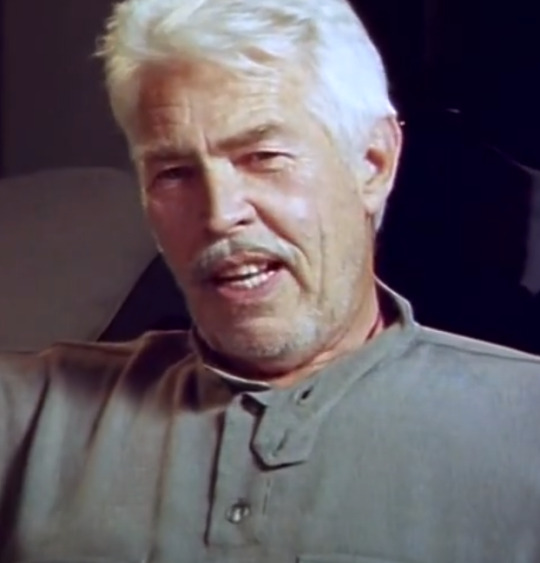
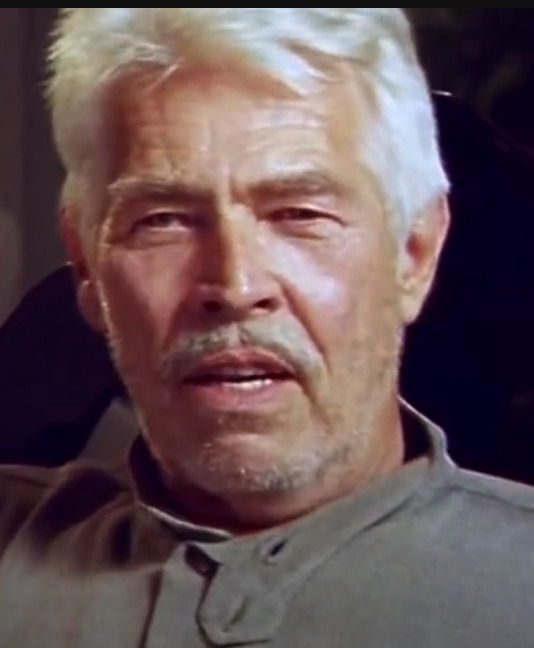

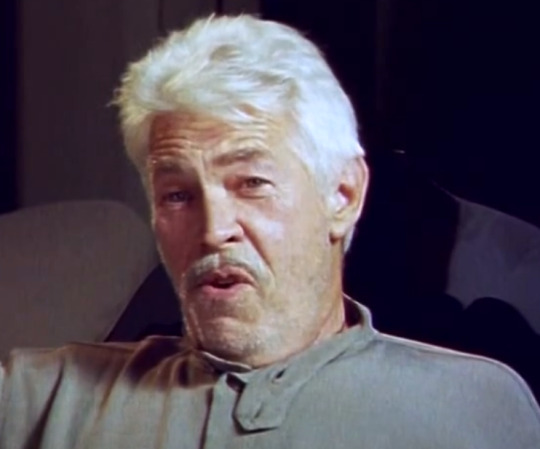
https://youtu.be/2w4m22S9pFk?list=PLfRo9AhxoLLgr0ZMgJ_ogOkUClDPu8mOb&t=1039
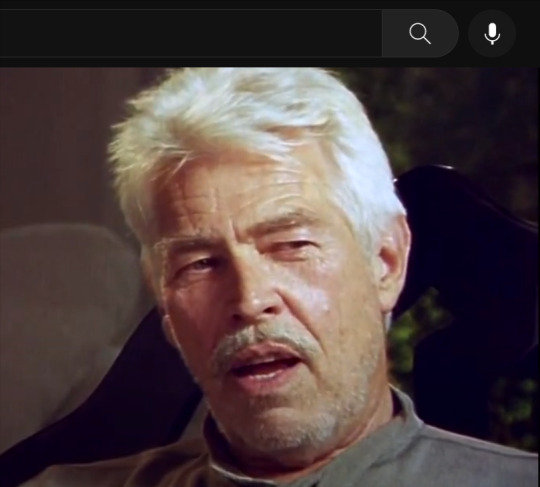
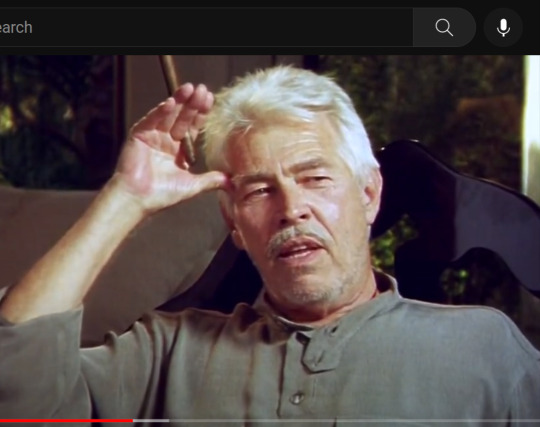

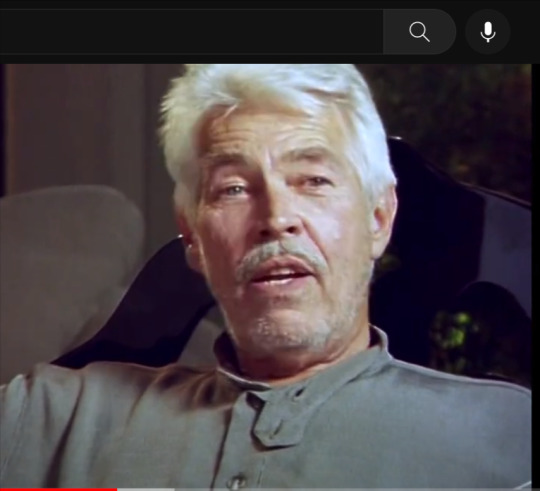
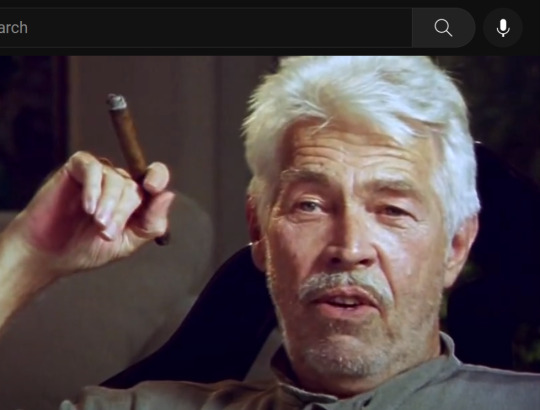


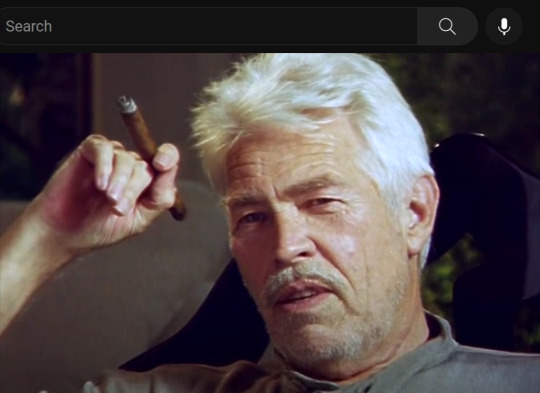
0 notes
Photo
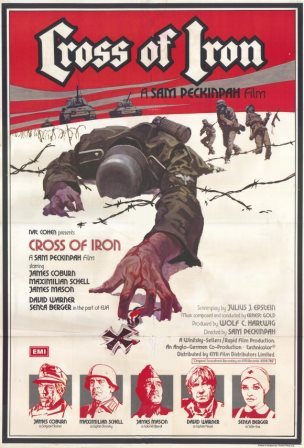
New Post has been published on http://www.classicfilmfreak.com/2017/07/06/cross-of-iron-1977-with-james-coburn-and-maximilian-schell/
Cross of Iron (1977) with James Coburn and Maximilian Schell
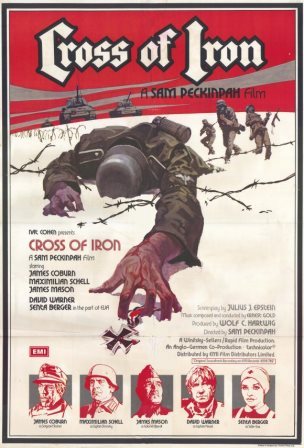

Colonel Brandt: What will we do when we have lost the war?
Captain Kiesel: Prepare for the next one.
Sam Peckinpah’s films are known for predominantly three things. Notably they seem to delight in the depiction of violence and death, usually through the (sometimes over) use of slow-motion. His leading characters also usually fall into the category of ‘old souls;’ folks who are perhaps half a generation behind in holding on to older, more traditional- and perhaps currently underappreciated ideals.
Peckinpah’s last major film was 1977’s epic Cross of Iron, set on the Eastern front in the middle of the Second World War. The story, told from the German perspective and centering around the life of a reconnaissance platoon. We aren’t at the doorsteps of German defeat just yet, but the average soldier sees it coming. At least, for a little bit longer, their fighting on Russian soil.
James Coburn, one of Peckinpah’s favorites, is Sergeant Steiner, the almost mythical leader of this platoon of mostly hardened veterans. But with casualties on the rise some appallingly young replacements are arriving to fill the dwindling ranks. The platoon’s life is undeniably hard, returning from each patrol to their timbered bunker, where Steiner leads by creating a somewhat familial environment and devout application of simple reality and common sense.

We’re also presented with Steiner’s new commanding officer, Prussian aristocrat Captain Stransky (Maximilian Schell). Stransky’s feelings about the future of the war are unclear, but overall he seems uninterested in the outcome of the conflict as long as he can take home an Iron Cross- of which Steiner has two already. Stransky’s not depicted as a faithful Nazi (actually no one in the film is), but he’s definitely the stereotypical military man, simply obeying orders for his own vanity coupled with more than a touch of combat inexperience; though he’ll be the last to admit to it.
Last of the big three is James Mason as Colonel Brandt, Stransky’s superior and a quiet admirer of what Steiner brings to the group. Though Mason is rarely (if ever) bad in anything, he takes on the role extremely effectively, doing his duty but openly questioning the cause, most notably during his introduction to his new captain, Stransky.
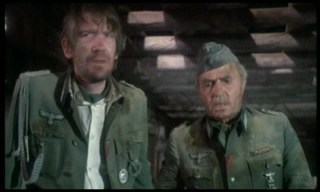
Though slightly overshadowed by his earlier masterpiece The Wild Bunch, Cross of Iron is perhaps the among the greatest anti-war movies made. Among its admirers was Orson Welles, who called it the best war film he had seen since All Quiet on the Western Front, notably mentioning the films focus on the enlisted man rather than the high and mighty generals.
Though many, especially at the time of its release, criticized the film it has since seen its critical acclaim increase of late. Many audiences in the United States were seemingly overwhelmed by the near constant barrage of explosions and flying bodies and other ‘sundries.’ Of course being in the theaters against the original Star Wars didn’t help. In Europe, however, the film did much better. Ironically (and most likely due to a more intimate relationship with the material situations) the film did exceedingly well in Germany, becoming one of the biggest earners of the era.
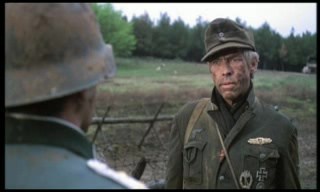
What many early viewers lamented was that the action was so pervasive that the plot was lost in the shuffle. Though there are tidbits of what one would term a plot, these viewers missed the point of Peckinpah’s imagery. His point is that war is so awful, so pointless, so omnipresent that everything else fades into the background at best, though nothingness is the more likely result.
We see this even in the more dramatic points of the film, where Peckinpah masterfully shows the platoon (and to a lesser extent Stransky and Brandt themselves) developing ways just to get through the day. For the platoon this is simple birthday parties for fellow soldiers and fart jokes. Stransky’s obsession with the Iron Cross too is likely to large extent a mere distraction to enable him to simply survive (though surely prestige in the eyes of his family plays a roll as well).
Only Mason’s Brandt sees little need for such mere distractions. To him, war is life. He knows nothing else. Kiesel (David Warner) is of a similar disposition when he asks, “What will we do when we have lost the war?”
“Prepare for the next one.”
Peckinpah’s message is clear. We don’t all (at least most of us, anyway) want to be trapped in an endless cycle of fighting wars and then preparing for the next one. As ironic as it sounds, there was at the time (1943-45) perhaps a perception in the German populace that after losing Hitler’s war there’d be a mere respite before the next great conflagration. Most
had already been through the better part of two World Wars with twenty years of peace separating them.
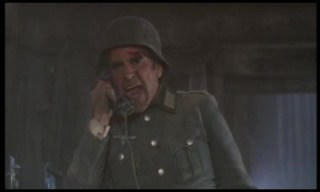
There’s other bright lights in the casting besides Mason. James Coburn takes a turn in perhaps one of his most effective performance as the gritty and bare bones Steiner. Thankfully not engaging in any contrived German accent, Coburn’s Steiner becomes a beacon to his platoon, a man that in spite of all the retreats and shelling and death could still rally his mean to attempt the unthinkable against any odds. When Kiesel (taking on his role as almost a third party observer) states that Steiner, “Is a myth. Men like him are our last hope…and in that sense, he is a truly dangerous man;” we believe him.
Maximilian Schell also perfectly blends blind Prussian militarism with simple cowardice in presenting a more complicated picture than’s visible at first glance. In one of his better scenes, he is on the phone talking to Brandt while under fire. Within a few seconds he claims he’s both retreating and counterattacking in a crude attempt to guess what Brandt wants to hear.
Of final mention is don’t forget to look for the vintage Soviet T34 tanks used throughout the picture, courtesy of the Yugoslavian military who had kept them purely for cinematic purposes.
https://www.youtube.com/watch?v=AonZdAfEQgA
2 notes
·
View notes
Photo
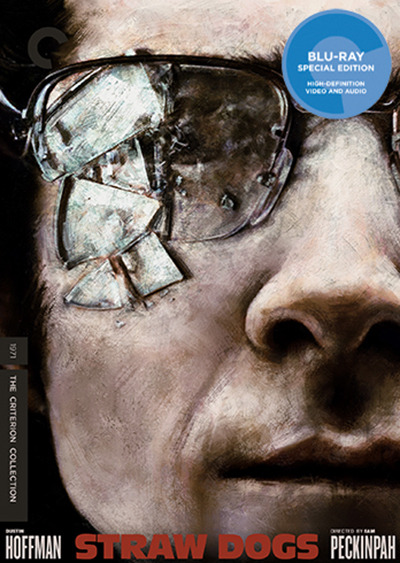
Straw Dogs will be released on Blu-ray and DVD on June 27 via The Criterion Collection. The controversial 1971 thriller has been newly restored in 4K and includes the uncompressed monaural soundtrack.
The film is directed by Sam Peckinpah (The Wild Bunch). He co-wrote the script with David Zelag Goodman (Logan's Run), based on Gordon M. Williams's 1969 novel, The Siege of Trencher's Farm. Dustin Hoffman and Susan George star.
Special features are listed below.
Special features:
Audio commentary by Savage Cinema: Sam Peckinpah and the Rise of Ultraviolent Movies author Stephen Prince (2003)
Mantrap: Straw Dogs - The Final Cut - Making-of documentary with cast and crew (2003)
Sam Peckinpah: Man of Iron - Documentary featuring actors Kris Kristofferson, Jason Robards, Ali MacGraw, and more (1993)
Conversation between film critic Michael Sragow and filmmaker Roger Spottiswoode, who worked as one of the editors on the film (new)
Interview with film scholar Linda Williams about the controversies surrounding the film (new)
Archival interviews with actor Susan George, producer Daniel Melnick, and Peckinpah biographer Garner Simmons
Behind-the-scenes footage
TV spots and trailers
Essay by scholar and critic Joshua Clover
In this thriller, arguably Sam Peckinpah’s most controversial film, David (Dustin Hoffman), a young American mathematician, moves with his English wife, Amy (Susan George), to the village where she grew up. Their sense of safety unravels as the local men David has hired to repair their house prove more interested in leering at Amy and intimidating David, beginning an agonizing initiation into the iron laws of violent masculinity that govern Peckinpah’s world. Working outside the U.S. for the first time, the filmmaker airlifts the ruthlessness of the western frontier into Cornwall in Straw Dogs, pushing his characters to their breaking points as the men brutalize Amy and David discovers how far he’ll go to protect his home—culminating in a harrowing climax that lays out this cinematic mastermind’s eloquent and bloody vision of humanity.
18 notes
·
View notes
Photo
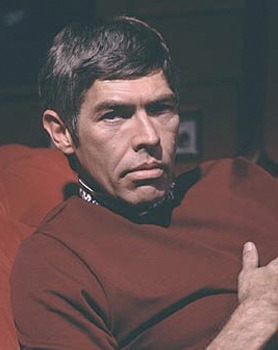
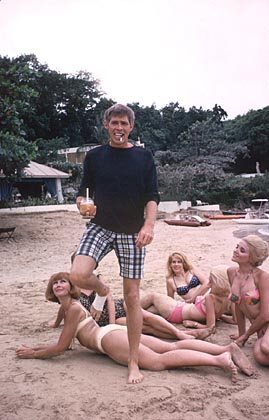
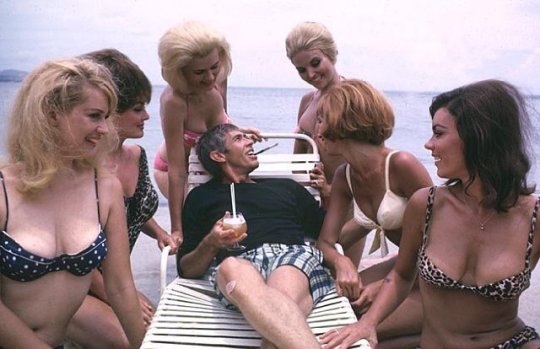


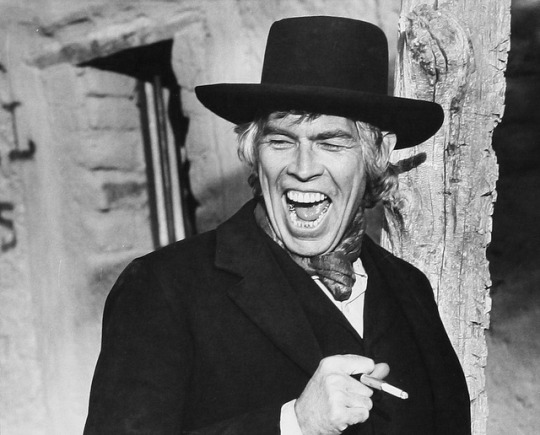
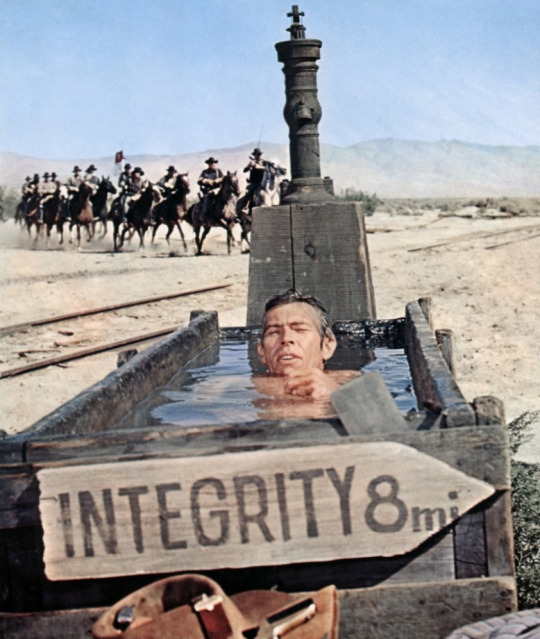
Today we remember the passing of James Coburn who Died: November 18, 2002 in Beverly Hills, California
James Harrison Coburn III was an American actor. He was featured in more than 70 films, largely action roles, and made 100 television appearances during a 45-year career, ultimately winning an Academy Award in 1999 for his supporting role as Glen Whitehouse in Affliction.
Coburn was a capable, rough-hewn leading man, whose toothy grin and lanky physique made him a perfect tough guy in numerous leading and supporting roles in westerns and action films, such as The Magnificent Seven; Hell Is for Heroes; The Great Escape; Charade; Our Man Flint; In Like Flint; Duck, You Sucker!; Pat Garrett and Billy the Kid; and Cross of Iron. Coburn provided the voice of Mr. Waternoose in the Pixar film Monsters, Inc. In 2002, he received a Primetime Emmy Award for Outstanding Miniseries nomination for producing The Mists of Avalon.
During the late 1960s and early 1970s, Coburn cultivated an image synonymous with "cool" and, along with such contemporaries as Lee Marvin, Steve McQueen, Charles Bronson and Clint Eastwood, became one of the prominent "tough-guy" actors of his day.
Coburn began to drop back down the credit list: he was third billed in writer-director Richard Brooks' film Bite the Bullet (1975) behind Gene Hackman and Candice Bergen. He co-starred with Charles Bronson in Hard Times (1975), the directorial debut of Walter Hill, but it was very much Bronson's film. The movie was popular.
Coburn played the lead in the action film Sky Riders (1976) then played Charlton Heston's antagonist in The Last Hard Men (1976). He was one of the many stars in Midway (1976) then had the star role in Sam Peckinpah's Cross of Iron (1977) playing a German soldier. This critically acclaimed war epic performed poorly in the United States but was a huge hit in Europe. Peckinpah and Coburn remained close friends until Peckinpah's death in 1984.
Coburn returned to television in 1978 to star in a three-part mini-series version of a Dashiell Hammett detective novel, The Dain Curse, tailoring his character to bear a physical resemblance to the author. During that same year as a spokesman for the Joseph Schlitz Brewing Company, he was paid $500,000 to promote its new product in television advertisements by saying only two words: "Schlitz. Light." In Japan his masculine appearance was so appealing he became an icon for its leading cigarette brand. He also supported himself in later years by exporting rare automobiles to Japan. He was deeply interested in Zen and Tibetan Buddhism, and collected sacred Buddhist artwork. He narrated a film about the 16th Karmapa called "The Lion's Roar".
Coburn starred in Firepower (1979) with Sophia Loren, replacing Charles Bronson when the latter pulled out. He had a cameo in The Muppet Movie (1979) and had leading roles in Goldengirl (1980) and The Baltimore Bullet (1980). He was Shirley MacLaine's husband in Loving Couples (1980) and had the lead in a Canadian film, Crossover (1980).
Coburn moved almost entirely into supporting roles such as those of the villains in both High Risk (1981) and Looker (1981). He hosted a TV series of the horror-anthology type, Darkroom, in 1981 and 1982.
Coburn also portrayed Dwight Owen Barnes in the PC video game C.E.O., developed by Artdink as a spin-off of its A-Train series.
Because of his severe rheumatoid arthritis, Coburn appeared in very few films during the 1980s, yet he continued working until his death in 2002. This disease had left Coburn's body deformed and in pain. "You start to turn to stone," he told ABC News in an April 1999 interview. "See, my hand is twisted now because tendons have shortened." For 20 years, he tried a host of both conventional and unconventional treatments, but none of them worked. "There was so much pain that...every time I stood up, I would break into a sweat," he recalled. Then, at the age of 68, Coburn tried something called MSM, methylsulfonylmethane, a sulfur compound available at most health food stores. The result, he said, was nothing short of miraculous. "You take this stuff and it starts right away," said Coburn. "Everyone I've given it to has had a positive response." Though the MSM did not cure Coburn's arthritis, it did relieve his pain, allowing him to move more freely and resume his career.
Coburn was in a relationship with British singer-songwriter Lynsey de Paul in the late 1970s. They co-wrote her songs "Losin' the Blues For You" and "Melancholy Melon" that appeared on her 1979 Tigers and Fireflies album.
Coburn returned to film in the 1990s and appeared in supporting roles in Young Guns II, Hudson Hawk, Sister Act 2: Back in the Habit, Maverick, Eraser, The Nutty Professor, Affliction, and Payback. Coburn's performance in Affliction eventually earned him an Academy Award for Best Supporting Actor. In addition, he provided the voice of Henry J. Waternoose III in Monsters, Inc., a joint production of Walt Disney Pictures and Pixar Animation Studios.
Coburn was married twice. His first marriage was to Beverly Kelly, in 1959; they had two children together. The couple divorced in 1979 after twenty years of marriage.
He later married actress Paula Murad Coburn, on October 22, 1993 in Versailles, France; they remained married until Coburn's death in 2002.
Coburn died of a heart attack at the age of 74 on November 18, 2002 while listening to music at his Beverly Hills home. Less than two years later, Paula died of cancer on July 30, 2004, at age 48.
1 note
·
View note